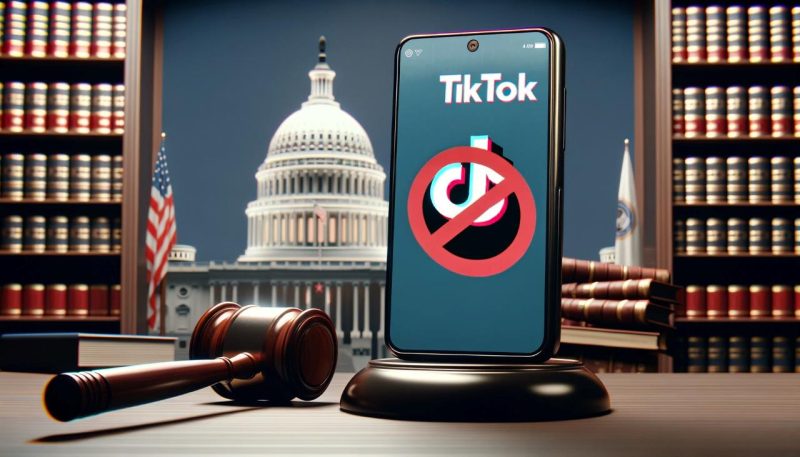
In a move that’s sparked as much debate as it has headlines, the U.S. House of Representatives has just voted in favor of banning TikTok. The bill now moves to the Senate.
Is TikTok Banned in US? Not Yet
This isn’t just any social media scuffle; it’s a geopolitical chess game with implications that stretch from Silicon Valley’s backyards to the bustling streets of Beijing. Let’s dive into what this decision means, why it matters, and what you, yes you, need to know about the unfolding drama.
The Why Behind the Ban
So, why the sudden legislative spotlight on TikTok? It’s not just because your aunt finally learned how to go viral with her gardening tips. The concerns are deep, twofold, and serious:
- Data Privacy: At the heart of the matter is the fear that TikTok, owned by Chinese tech giant ByteDance, could hand over user data to the Chinese government. In a world where your data is as good as gold, the idea of personal information being used for surveillance or influence is chilling.
- National Security: Beyond the bytes and bits, there’s anxiety about national security. The argument goes that the app could be used to spread misinformation or propaganda, a modern warfare tool hidden behind dance challenges and lip-syncs.
The Reaction: Mixed, as Expected
The vote has stirred up a cocktail of reactions. On one side, there’s a chorus of applause from those who see this as a necessary step to protect privacy and national security. On the other, voices of concern argue it’s a slippery slope toward censorship and a stifling of free expression.
Critics also point out the complexities of enforcing such a ban. After all, banning an app isn’t like turning off a water faucet. It’s more akin to playing whack-a-mole in a digital landscape (sorry, I promised no fluffy BS, but you get the idea).
What This Means for You
For the average TikTok user, this news hits close to home—or, more accurately, close to phone. If the ban goes through, what happens to your content, your followers, and those late-night scrolling sessions? Here’s a quick breakdown:
- Content Creators: If you’re crafting content on TikTok, it’s time to diversify. Consider other platforms, like YouTube or Instagram Reels, as alternative stages for your creativity.
- Businesses and Marketers: Brands leveraging TikTok for engagement will need to reassess their social media strategies. It’s a wake-up call to not put all your digital eggs in one basket.
- The Casual Scroller: The loss of TikTok could mean finding new ways to waste—I mean, spend—your time. But, it’s also a reminder of the volatile nature of relying on any single platform for entertainment.
The Global Domino Effect
The U.S. isn’t operating in a vacuum here. Other countries are watching closely, and some have already taken similar steps against TikTok. This move by the House could encourage a domino effect, leading to a more fragmented internet landscape where what’s available in one country isn’t in another.
Looking Ahead
This is far from the final act in the TikTok drama. The proposal faces more hurdles before it becomes law, including the Senate’s approval and a presidential sign-off. And let’s not forget TikTok’s response. The company has been vocal about its commitment to user privacy and has taken steps to distance its operations from China.
But here’s the thing: even if TikTok manages to dance around this ban, the broader questions remain. How do we balance national security with free speech? Can we protect user data without stifling global connectivity? These are the debates worth having, and they’re bigger than any single app.
Engage, Debate, Discuss
Now, I turn the mic over to you. What’s your take on the House’s move to ban TikTok? A necessary step for national security or a dangerous precedent. Do you think TikTok should be banned in US or are you more for Internet freedom? Drop your thoughts in our Slack or Discord chat or hit us up on social media. Let’s keep this conversation going.